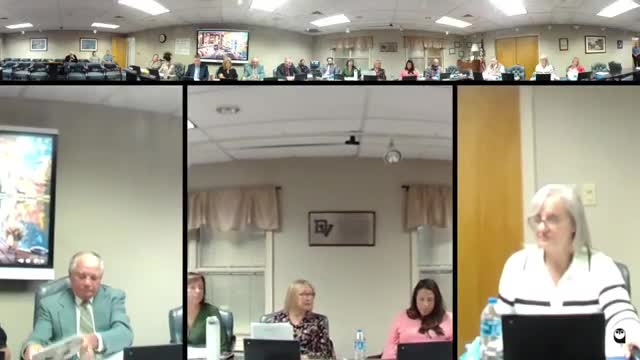Board divided over OCR resolutions; legal options and declaratory action discussed
October 10, 2025 | Delaware Valley SD, School Districts, Pennsylvania
This article was created by AI summarizing key points discussed. AI makes mistakes, so for full details and context, please refer to the video of the full meeting. Please report any errors so we can fix them. Report an error »

A Delaware Valley SD board member asked the board to place two resolutions on a future agenda to formally declare the district’s position on its Office for Civil Rights (OCR) agreement. The request prompted an extended discussion in which other board members and legal counsel expressed concern about legal exposure and recommended further study or a declaratory action in federal court instead of an immediate public vote to rescind the OCR agreement.
The board member pushing for an agenda vote said the matter has been pending for months and that the board should record a clear public yes‑or‑no position. Other members said they were not prepared to vote without more legal clarity, noting ongoing court activity nationally and counsel’s advice that rescinding an OCR agreement may not release the district from enforcement or liability.
Nick, identified in the meeting as the district solicitor, described a legal avenue: filing a declaratory judgment action that would ask a federal court to determine which authorities — the OCR agreement, executive orders, federal statutes or case law — control district obligations. Counsel warned that litigation is time‑consuming, may be stayed pending other federal litigation, and could take many months; counsel also advised that filing could draw more attention and cost legal fees.
Board members raised other legal and practical concerns: the possibility that the Department of Education could change positions under a future administration; the risk that a suit could expose the district to penalties if a future federal decision determined a violation; and the possibility of civil liability if a student were harmed under either policy choice. At least one board member said existing monitoring by OCR has been largely hands‑off, that the district has cooperated with monitoring requests, and that there have not been district‑wide safety incidents tied to the agreement.
No new formal action was taken. Some board members asked staff and counsel to provide a cost estimate and timeline for filing a declaratory action so the board could consider a concrete legal proposal at an upcoming meeting. A board member also withdrew a motion to place his resolutions on the agenda after discussion clarified that a declaratory action would be a separate legal step and not the same as passing the proposed resolutions.
The board repeatedly emphasized it was split on process: some directors want to take an aggressive legal step now; others prefer to wait for additional court rulings and further counsel input. Counsel and one board member said that if the board chooses the litigation path it should expect a multi‑step federal litigation process with discovery and scheduling, and with no guaranteed fast resolution.
The board member pushing for an agenda vote said the matter has been pending for months and that the board should record a clear public yes‑or‑no position. Other members said they were not prepared to vote without more legal clarity, noting ongoing court activity nationally and counsel’s advice that rescinding an OCR agreement may not release the district from enforcement or liability.
Nick, identified in the meeting as the district solicitor, described a legal avenue: filing a declaratory judgment action that would ask a federal court to determine which authorities — the OCR agreement, executive orders, federal statutes or case law — control district obligations. Counsel warned that litigation is time‑consuming, may be stayed pending other federal litigation, and could take many months; counsel also advised that filing could draw more attention and cost legal fees.
Board members raised other legal and practical concerns: the possibility that the Department of Education could change positions under a future administration; the risk that a suit could expose the district to penalties if a future federal decision determined a violation; and the possibility of civil liability if a student were harmed under either policy choice. At least one board member said existing monitoring by OCR has been largely hands‑off, that the district has cooperated with monitoring requests, and that there have not been district‑wide safety incidents tied to the agreement.
No new formal action was taken. Some board members asked staff and counsel to provide a cost estimate and timeline for filing a declaratory action so the board could consider a concrete legal proposal at an upcoming meeting. A board member also withdrew a motion to place his resolutions on the agenda after discussion clarified that a declaratory action would be a separate legal step and not the same as passing the proposed resolutions.
The board repeatedly emphasized it was split on process: some directors want to take an aggressive legal step now; others prefer to wait for additional court rulings and further counsel input. Counsel and one board member said that if the board chooses the litigation path it should expect a multi‑step federal litigation process with discovery and scheduling, and with no guaranteed fast resolution.
View full meeting
This article is based on a recent meeting—watch the full video and explore the complete transcript for deeper insights into the discussion.
View full meeting